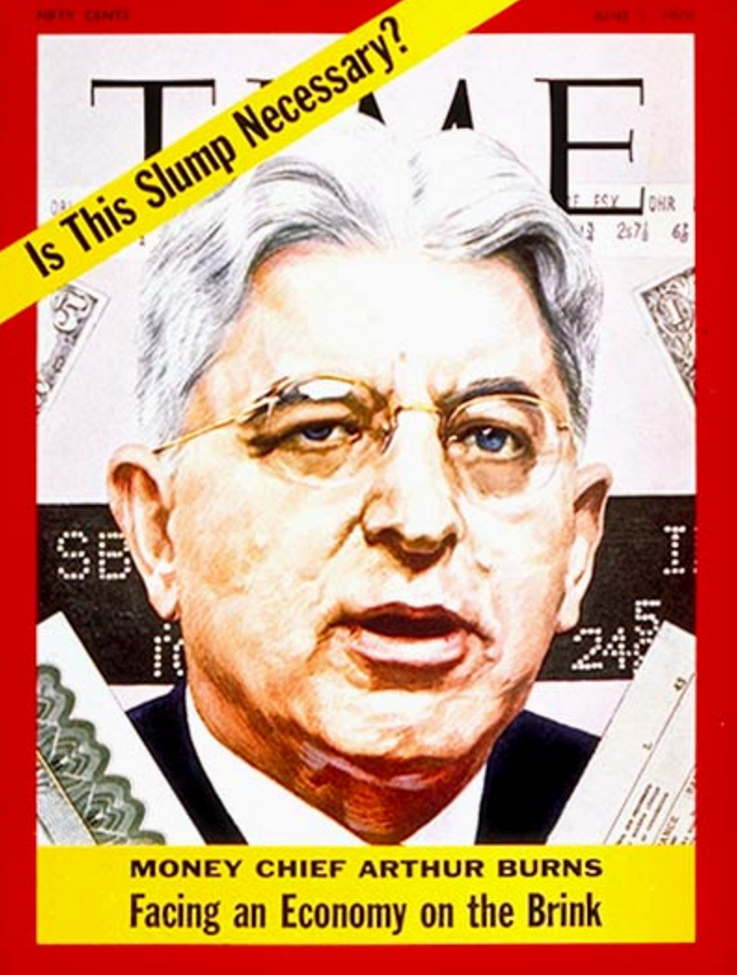
Politico claims that Gary Cohn is likely to be appointed chair of the Federal Reserve. I have very mixed feelings about this choice. Let’s start with the choice itself, separate from the administration that is expected to nominate him.
I feel the same way about appointing Cohn to be Fed chair as I would to his appointment to be Chief Justice of the Supreme Court. He seems like an extremely competent person, and a quick learner. He probably would not embarrass himself in either role. But he’s neither a legal export nor an expert on monetary policy. And those positions are best filled by people with expertise in the extremely complex areas they oversee.
In the last 8 years I’ve interacted with a very large number of people, in all sorts of venues, who think they understand monetary policy, in all sorts of venues. Thinking you understand monetary policy and actually understanding it are two very different things. I see this kind of pick as part of the broader move toward anti-intellectualism, which is especially pronounced in the GOP.
Nonetheless, I would not have any major problems with the Cohn pick in the abstract. What makes me worry about this pick is that Gary Cohn cannot be viewed in isolation. He is the most important policymaker in the Trump administration, and to say that this administration lacks sensitivity to the importance of the separation of powers among various breaches of government would be an understatement. Other presidents have done similar things, but in recent decades we’ve been moving away from a highly politicized Fed. This would be a huge step backwards. Let’s hope this proposal is received the same way FDR’s “court packing” scheme was greeted. Let’s hope that principled conservatives say this is a bridge too far.
The last thing we need right now is a Fed trying to “juice” the economy to get Trump re-elected.
PS. I recall a number of commenters that predicted Trump would pick a hawkish Republican economist. I was skeptical. Now it looks like he’ll pick a dovish Democratic non-economist.
PPS. Remember this guy? (And yes, the 1970 slump was necessary. It was caused by the previous overly expansionary policy.)

READER COMMENTS
Antischiff
Jul 12 2017 at 11:30am
Dr. Sumner,
Is a recession actually necessary to reduce the expected path of money supply growth, because long run promises with a changing FOMC are difficult to make? Otherwise, I’d expect that a credible Fed that could promise a gentler NGDP slowdown over a longer period of time could perhaps avoid outright recessions in some cases.
Adam
Jul 12 2017 at 1:02pm
What makes for a great Fed Chair? Did expertise help Bernanke avoid the 2007-8 crash? No. Academics didn’t agree on recovery strategy– Bernanke and Taylor strategies were quite different, weren’t they?
Economies eventually recover and only one strategy can be implemented, so how does one identify a better macro policy–or a better Fed Chair?
Scott Sumner
Jul 12 2017 at 2:53pm
Antischiff, Yes, a recession was necessary, but not to reduce money growth. It was necessary to reduce inflation.
And indeed the slowdown in inflation was pretty “gentle”.
The economy was overheated in 1969–that’s why we had a recession. People tend to forget that expansionary monetary policies have consequences–they lead to recessions after the effect wears off.
The real problem is that they enacted another expansionary policy after inflation started falling in 1971
Adam, I suppose there are many factors, but expertise in the field is surely an advantage. Bernanke did far better than Trichet, who is a less talent monetary expert.
Jose
Jul 17 2017 at 8:51am
In Brazil Henrique Meirelles was a successful bank executive, never an academic, and already involved in politics when he was appointed central banker, and can be considered the best central banker Brazil has ever had. Bernanke was the ultimate technocrat, and according to many critics, he ultimately failed, despite his knowledge of the matter.
Comments are closed.